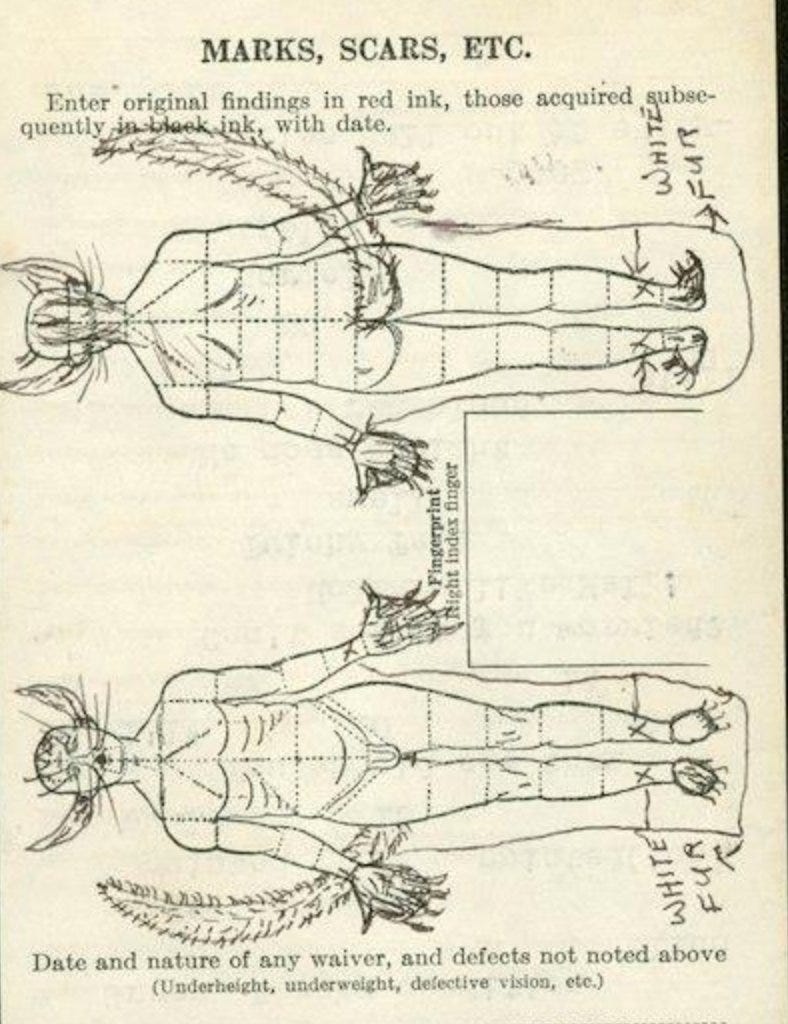Jan. 12, 2024 ❧ Israel at the Hague, the US bombs Yemen, and a Florida school bans the dictionary
Plus Tunisia's abuses of African migrants, Chabad tunnels in Brooklyn, the U.S. ranks #59 in human rights, more journalists banned on Twitter, and a cat with a military physical
Make news, not war
BIG STORY
ISRAEL AT THE HAGUE ON GENOCIDE CHARGES
Last week, the government of South Africa brought charges before the International Court of Justice—the highest judicial authority in the United Nations—accusing the nation of Israel of perpetrating a genocide in the Gaza Strip. In hearings that were broadcast globally yesterday, South Africa made the case that the unrelenting bombing campaign Israel launched in the wake of Hamas’ attack on October 7 of last year has amounted to an attempt to bring about “the destruction of the population” of Gaza.
Over the last three months, Israel’s bombing campaign has killed more than 1 in every 100 people in Gaza—more than 23,000 as of Thursday. By the Israel Defense Force’s own admission, at least 67 percent of those killed have been civilians (Though this estimate counts every adult male under 60 as a militant by default, meaning that the real ratio of civilians to militants killed is certainly much higher.) Even if we take the IDF’s conservative estimate at face value, this makes Israel’s campaign more deadly for civilians than any since World War II. To put things further into perspective, more civilians were killed in Gaza in the first month of the war alone, than were killed in 18 months since Russia’s invasion of Ukraine. More than 85 percent of Gaza’s people—almost 2 million—have been displaced from their homes.
This is only the second time in the history of the ICJ that one state has used the body to litigate the atrocities of another. The other occurred in 2019 when the Gambia—a small West African nation—brought charges against Myanmar for its genocide of Rohingya Muslims, which resulted in a ruling that forced the nation to halt acts violating the genocide convention. Should Israel be found guilty by the court’s panel of 15 judges, South Africa hopes that it will result in an interim order forcing Israel to halt its merciless bombing campaign. Importantly, South Africa does not have to immediately prove that Israel is committing a genocide, only that it’s plausible they are, to receive such an order.
The UN Prevention and Punishment of the Crime of Genocide, adopted in 1948 following the systematic murder of Jews during the Holocaust, defines “genocide” as the act of killing and maiming “committed with intent to destroy, in whole or in part, a national, ethnical, racial or religious group.” As such, South Africa’s case against Israel, filed initially in the form of an 84-page document filed in late December consisting largely of statements made by members of the Israeli government, including Prime Minister Benjamin Netanyahu and members of his cabinet and the Israeli military that express a desire not just to defeat Hamas, but to totally destroy the people of Gaza. “An extraordinary feature in this case,” South African lawyer and legal scholar Tembeka Ngcukaitobi said before the ICJ, is “that Israel’s political leaders, military commanders, and persons holding official positions have systematically and in explicit terms declared their genocidal intent.” Here is Ngcukaitobi speaking before the ICJ laying out a litany of these horrific public statements:
STORIES THAT SHOULD BE BIGGER
THE U.S. SCORES 59th IN HUMAN RIGHTS
Last month, the University of Rhode Island’s Global Rights Project (GRIP) released its annual report on the state of human rights around the world. Using the CIRIGHTS database, the report analyzes four broad categories of human rights: “Physical Integrity,” “Empowerment,” “Worker Rights,” and “Justice Rights,” with several subcategories in each:
When GRIP applied these standards to 195 world nations, the results were not great, to say the least. The majority of countries received a failing grade, with 60 percent scoring less than a 60 across all categories. Meanwhile, only 20 percent of countries got the numeric equivalent of an “A”. Finland scored the highest, with a combined score of 98, while Iran was the only country to completely flunk its “report card,” getting a zero. Not exactly shocking news, in either case. What is a little surprising is how badly the United States ranked: 59th worldwide, with a score of 64, or a “D.” That’s squarely middle of the pack, even among the Americas, where the U.S. was 14th out of 31. Pretty rough, for a country that presumes itself to be “the indispensable nation,” and whose leaders routinely lecture others on their human rights record.
Of course, putting a numeric score on “self-determination” or “religious freedom” can be a questionable endeavor, since those things are somewhat subjective, and perceptions could be biased. Similar criticisms have also dogged the Freedom House project, which ranks countries on how “democratic” they are. Still, the issues that led to the United States’ low score with GRIP definitely sound familiar. The two biggest shortcomings were in the areas of labor rights and police violence, as Big Think’s Ross Pomeroy notes:
U.S. law enforcement agencies far too often utilize interrogation techniques that cross over into torture, the report’s authors explained. Police also kill more than 1,000 people every year, disproportionately black Americans. Moreover, “the lack of effort to pass policing reform at the federal level, failure to develop national tracking of police killings, and failure to update use-of-force laws to comply with international standards” signal that these deaths seem to be accepted by policymakers as status quo.
As for deficits in U.S. labor rights, the report’s authors cited “obstacles to unionization and collective bargaining, as well as failures to guarantee safe working conditions, decent wages, and benefits.” They also noted that there is frequent use of child labor, particularly in agriculture, where children as young as 12 years old can work up to 60 hours per week.
Clearly, we have serious work to do as a country before we should dare to look at anyone else and say they’ve got a human rights problem. Until then, chant it proudly: “We’re #59! We’re #59!”
❧ Public figures keep getting “swatted.” For the unfamiliar, “swatting” is when someone calls the police with a false report, saying that a particular person is planning to commit acts of violence or has taken hostages. The goal is to get a SWAT team sent to the victim’s house, hence the name. Like many awful things, swatting started among gamers, but has spread beyond that community in the last few years. Now, elected officials are being targeted. Among other cases, someone recently swatted Senator Rick Scott, saying that a shooting had occurred at his Florida home. Soon after she attempted to remove Donald Trump from the ballot, Maine’s Secretary of State Shenna Bellows was swatted, with several armed officers showing up at her house. Representative Marjorie Taylor Greene claims it’s happened to her eight times, the latest on Christmas. At this rate, it’s only a matter of time before a public official is seriously hurt or killed in a swatting incident, as Call of Duty gamer Andrew Finch was in 2017. At the bare minimum, police should probably start checking whether the addresses they’re given belong to politicians, before they go storming in. But really, swatting is only possible because U.S. police are highly militarized and prone to random outbursts of violence, often not even knocking before kicking people’s doors down. As editor T.C. Swottek wrote for The Verge in 2020, “Police violence isn’t just something everyone knows about. In America, it’s something you can order on-demand.” Only when the police are seriously reformed, disarmed, or even abolished altogether will that cease to be the case.

❧ Chris Christie’s Presidential campaign has come to an end, disappointing all six of his loyal fans. This wasn’t hard to see coming: in national polls, Christie never did better than 4 percent, and his campaign had no real policy agenda, consisting mostly of insults lobbed in Donald Trump’s general direction. Even in his home state of New Jersey, Christie isn’t particularly beloved. Instead, he’s known mostly for his role in tacky, low-rent scandals like “Bridgegate,” or that one time he shut down the beach and then lounged around on it. It’s still unclear if he actually expected to become President, or if his campaign was just an excuse to sell a few books. Still, he leaves us with a parting gift: on a hot mic in New Hampshire, he roasted his fellow Republicans one last time, calling Ron DeSantis “petrified” and saying that Nikki Haley will “get smoked” when she goes up against Trump. Hey, when he’s right, he’s right.

AROUND THE STATES
❧ A school district in Florida has banned the dictionary. This should be an absurd joke headline in The Onion, but unfortunately it’s just a sign of our increasingly stupid political reality. Officials in Florida’s Escambia County have pulled around 1,600 books from school shelves, allegedly because they have “sexual content.” Combined with previous censoring sprees, this brings their total number of banned books to more than 2,800. PEN America has a full list of the forbidden titles, and there are some howlers in there: among other books, the county has banned a biography of Michelangelo (possibly because it included his nude statue of David), Douglas Adams’ The Hitchhikers’ Guide to the Galaxy, Charles Dickens’ A Tale of Two Cities, Bram Stoker’s Dracula, The Autobiography of Malcolm X, and the Guinness Book of World Records. More concerningly, they’ve removed informative books on sexual harassment and violence, like Dale Robert Reinert’s Sexual Abuse and Incest, that could be vital resources for students who’ve been victimized. And, yes, they’ve banned five different versions of the dictionary, including both Merriam-Webster’s and American Heritage. It’s not clear what the “sexual content” in question was, but presumably the dictionaries defined flagrantly obscene words like “intercourse” or—gasp!—“buttocks.” It’s ridiculous that the wave of book-banning in conservative states has come to this, but in a way, it’s terribly sad too. The people involved are so pathologically opposed to free expression, so terrified of the slightest hint of sexuality, that the dictionary is something they find threatening. To really achieve their goals, they’d have to ban all of human culture from the Venus of Willendorf to the present day—and if we let them, they just might.

❧ A tunnel under a synagogue in New York City has led to a spike in antisemitic conspiracy theories online. The tunnel first caught the internet’s attention on Monday night, after the NYPD arrested ten people during a dispute at the world headquarters of the Chabad Lubavitch movement in Crown Heights, Brooklyn. A particular subgroup of Hasidic Jews, the mainstream Chabad movement has been sparring with a breakaway sect who believe that Menachem Schneerson—the movement’s late spiritual leader, often known simply as “the Rebbe” —is in fact the Messiah. According to the New York Times, members of the Messianic faction constructed the tunnel in an attempt to illegally expand the synagogue at 770 Eastern Parkway, a move Schneerson had called for before his death in 1994. The main group didn’t think this was a particularly good or safe idea, so they hired a cement truck and attempted to fill the tunnels in. The Messianic faction fought them over it, and eventually the police were called. To a casual observer, all of this was pretty funny, and footage of a man in full Orthodox clothing popping out of a sewer grate like a Ninja Turtle soon went viral:
The incident was also the subject of some good tweets:
Unfortunately, antisemites had to spoil the fun. In the past, secret tunnels have been a common theme in right-wing conspiracy theories like PizzaGate and QAnon, and a disturbingly large number of posters online started connecting the Chabad tunnel to those theories, spreading hateful nonsense about Satanic rituals and sexual abuse going on underground. On Elon Musk’s Twitter (er, “X”) in particular, posts like those got thousands of views and likes. Mercifully, Musk himself didn’t post “interesting!” under any of them, but it wouldn’t be the first time he endorsed antisemitic conspiracy theories on the platform, which is rapidly becoming a sewer in its own right.
In recent years, supporters of the state of Israel have diluted the word “antisemitism” by using it as a political smear, hurling it indiscriminately against anyone who criticizes the Netanyahu government and the IDF—including, paradoxically, members of Jewish peace movements. But this incident reminds us that actual antisemitism—the hatred of the Jewish people as such, and the belief that Jews are inherently sneaky and sinister—is still alive and well. It’s a unique evil that has no place in any society, and it needs to be guarded against, on the internet and everywhere else.
❧ Following a similar ruling in Texas last week that upheld a ban on life-saving abortions, the Supreme Court has ruled that Idaho can ban abortions even when they are medically necessary. It ruled that the state’s abortion ban—which includes no exceptions except to prevent the death of a pregnant woman—did not violate the federal law requiring hospitals to provide emergency services to patients who come to the ER. The Supreme Court overturned a lower court ruling that determined that the law “protects patients not only from imminent death but also from emergencies that seriously threaten their health.” The law technically allows for abortions in cases where it is necessary to save a mother’s life—but that is often a judgment call. Doctors who perform abortions deemed “unnecessary” to protect a mother’s life must do so under threat of jail time, so they will inevitably err on the side of caution and try to avoid performing abortions whenever possible. We’ve seen this in other states where abortion is banned and this may be part of the reason pregnancy-related deaths are three times more likely in states with abortion bans.

❧ In a thoroughly weird moment this past week, several left-wing journalists and content creators were banned from Twitter for no discernible reason. The Intercept's Ken Klippenstein, The Texas Observer's Steven Monacelli, podcaster Rob Rousseau, MintPress’s Alan MacLeod, the account for the podcast TrueAnon, and an anonymous account with a squirrel avatar that posts many incisive critiques of US foreign policy, were all summarily suspended from the platform before being brought back days later amid backlash.
The common thread uniting all of the accounts banned is that they have all been critical of the site’s owner, Elon Musk. It wouldn’t be the first Elon’s critics have been banned from the site. In late 2022, a bunch of other journalists found their accounts taken down after making jokes about his private jet, only for Elon to unban them after leaving the question up to a user poll. This time around, though, there’s more to the story than Elon being a petty tyrant—the reporters in question have all been posting criticisms of the Israeli government, something Elon recently pledged to crack down on after he drew fire for making antisemitic comments (something we wrote about at length in a prior briefing). According to another journalist, Alejandra Caraballo, all of the accounts banned by Elon had also made comments about the pro-Israel Harvard donor and hedge fund manager Bill Ackman, who has urged Harvard to publicly release the identities of pro-Palestinian students so they can be blacklisted. Ackman has remained in the news, pushing for the resignation of Harvard president Claudine Gay amid allegations of plagiarism (though, to be clear, the real reason is that she refused to commit to disciplining pro-Palestinian students). Ackman became the subject of ridicule when it was revealed that his own wife, MIT grad Neri Oxman, plagiarized her own thesis directly from Wikipedia, something even middle schoolers know not to do. Whether Ackman got in Elon’s ear and pushed him to pull the trigger on his detractors is an open question. The fundamental problem here is the total lack of clear standards for what is and is not acceptable conduct on Twitter—something that has always been a problem, but has gotten even worse since the mercurial Mr. Musk purchased the site.

AROUND THE WORLD
❧ Last night, the United States and the United Kingdom launched a wave of airstrikes against Yemen which have reportedly killed five people and wounded six others. In an attempt to put pressure on Israel to stop its bombing of Gaza, Yemen’s Houthi militant group has been conducting attacks on shipping vessels in the Red Sea bringing supplies to Israel—attacks from which no deaths have been reported (though many Houthi drones and missiles have been shot down or missed their intended targets). Around 15 percent of all global trade is routed through the Red Sea, and a number of vessels have re-routed to the Horn of Africa, adding about 10 days to the journey and slowing down global shipping. The Houthis have made clear that they would cease firing upon shipping vessels if Israel ceased firing on Palestinian civilians. But instead of putting pressure on Israel to cease what Biden himself has acknowledged is an “indiscriminate” bombing campaign, he decided to directly embroil the US in another Middle Eastern war, completely unilaterally, without the Constitutionally required input from Congress. We will have more coverage of this in the next briefing, but for now, we implore you to think about what this says about the morality of American foreign policy. According to Biden, the indiscriminate bombing of a captive civilian population is totally acceptable and something we should continue to directly fund. But “attacks against international maritime vessels,” in an effort to stop that indiscriminate bombing, are worthy of furious retaliation.
❧ A Tunisian human rights group is accusing the government of repelling migrants en masse on Europe’s behalf. Tunisia, located in North Africa along the Mediterranean Sea and just 117 miles from Italy, is a common port of departure for Middle Eastern and African migrants fleeing war and poverty. In 2023, Tunisia intercepted double the number of migrants attempting to cross the sea than in the previous year. The Tunisian Forum for Economic and Social Rights accused authorities on Monday of violating the human rights of migrants during expulsions, which it says it carries out to “satisfy European blackmail and ensure the continued flow of financial and logistical support.” —in December, the EU agreed to grant Tunisia more than 150 million euros to help with financial recovery as part of a 1 billion euro deal under which Tunisia would serve as a buffer zone to keep migrants from other parts of Africa from reaching the Mediterranean.
The Forum brought to light numerous instances of abuses based on firsthand testimonies from migrants, who say they have experienced arbitrary arrests, violence, and property destruction. Expelled migrants have been forced to wander the deserts of Libya and Algeria often through inhospitable weather conditions. Those who have been deported to war-torn Libya have been forced into detention run by militant groups. “Sovereignty” the Forum says, “is not achieved by intimidating vulnerable groups and resorting to outdated laws and discriminatory circulars, but rather by initiating national policies that guarantee dignity, rights and freedoms for all humans.”
❧ A deal between Ethiopia and Somaliland is causing trouble on the Horn of Africa. Not to be confused with Somalia proper, Somaliland is a small separatist region, similar to Kashmir in India or Catalonia in Spain. On January 1, the separatist government made a deal with Ethiopia—the most populous country in the world to be completely landlocked—to lease part of their coastline, giving Ethiopia access to the Red Sea. The only problem is, the regular Somali government doesn’t recognize Somaliland’s authority to make decisions like that on its own behalf, and is now demanding that the deal be nullified. It’s a difficult situation for everyone involved—and one which, hopefully, can be resolved without escalating into military conflict.

CAT FACT OF THE WEEK
In 1944, as World War II raged in the Pacific, a US Navy crew member Ed Cope rescued a drowning kitten from the bay at Nouméa on the island of New Caledonia and named him George (short for “General Electric”).
“George lived with me in the Lighting Shop for over a year and went over the hill when we reached Seattle,” Cope said. During that time, according to the delightful Twitter account “Cats of Yore,” George received his own extremely detailed Navy health report and liberty card.
We can’t imagine a cleaner bill of health for George. His complexion is listed as “Hairy,” and his general appearance, “cattish” (We would hope so!). He has 20/20 vision and green eyes that the medical examiner was sure to specify were in “peachy condition.” In keeping with his “cattish” appearance, George’s ears were both “pointed.” His mouth, nose, and throat, meanwhile, apparently had to be seen to be believed while his skin and glands couldn’t be seen at all (we are not worried, as those things are appropriately covered in fur). George’s neck, meanwhile, was also in peak condition, evidenced by the fact that he “Hollers like Hell!”
If there’s one thing on here to be concerned about, it’s George’s temperature. The average housecat’s body temperature should be around 101-102.5F, but George is listed at a cool 69 (It is not out of the question that the examiner was simply making a bawdy joke—the assigned number in his official photograph is also “69696,” so presumably whoever produced this report quite liked the number).
George’s physical health was also documented visually on this neatly repurposed human diagram:

Writing and research by Stephen Prager and Alex Skopic. Editing and additional material by Nathan J. Robinson and Lily Sánchez. Fact-checking by Justin Ward. This news briefing is a product of Current Affairs Magazine. Subscribe to our gorgeous and informative print edition here, and our delightful podcast here.
Current Affairs is an independent left media organization supported entirely by its readers and listeners. We offer a beautiful bimonthly print and digital magazine, a weekly podcast, and a regular news briefing service. We are registered with the Internal Revenue Service as a 501(c)(3) nonprofit organization with EIN 83-1675720. Your gift is tax-deductible to the extent allowed by law. Donations may be made through our website, via wire transfer or by sending us a check. Email help@currentaffairs.org with any questions.












